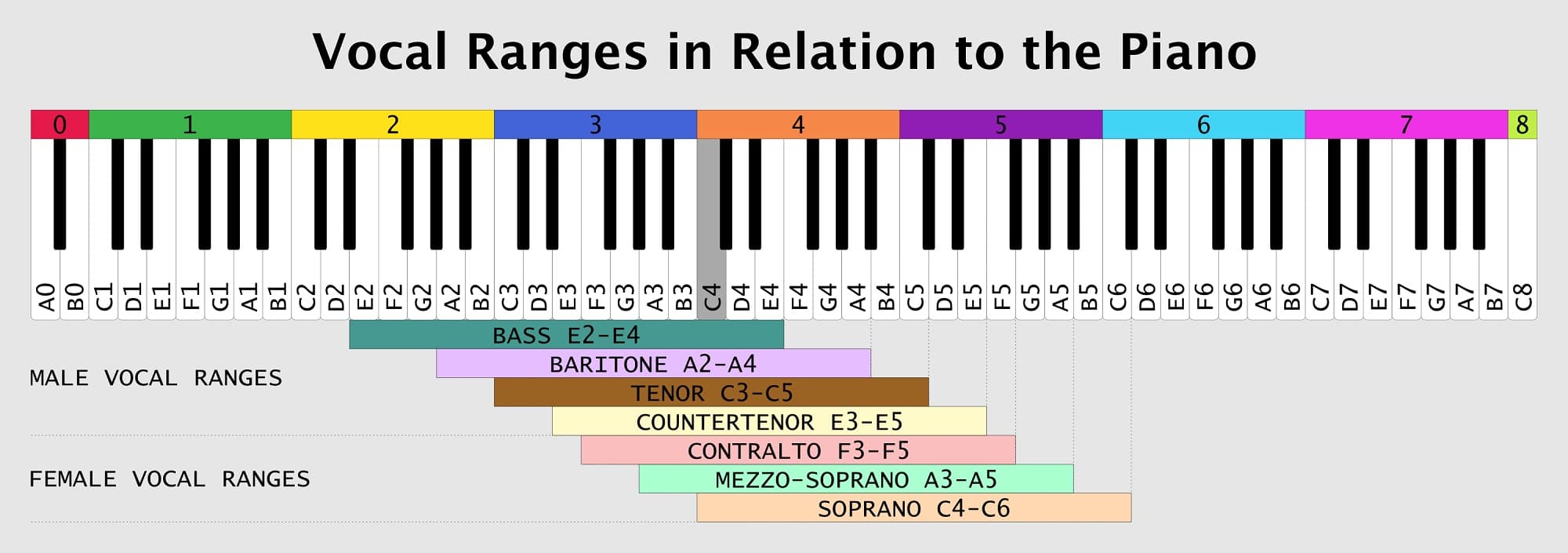
Типы голосов (Soprano, Mezzo-Soprano, Contralto, Tenor, Baritone, Bass) с примерами и характерным описанием каждого на английском.
Soprano The highest female voice
They are usually women, but young boys may also fit into this category––their soft and airy tone works well in choir Voices.
Possible description:
shimmering, shining, gleaming, bell-like, yellow, white, silvery, metallic, crystalline, silky, creamy
A soprano performs as The Queen of the Night in Mozart's The Magic Flute
Mezzo-Soprano A female voice
They are female, with the exception of some male specialists known as countertenorswho, much like their 17th- and 18th-century predecessors, train their vocal chords to approximate a female mezzo sound.
Possible description:
dark, musky, glowing, fiery, golden, burgundy, copper, smooth, velvety, chocolate-y
A mezzo-soprano performs "Habanera" from Bizet's Carmen
Contralto The lowest female voice
They are females
Possible description:
heavy, strong, bronze, purple, smoky, husky, rich, dark chocolate-y
Tracy Chapman "Give Me One Reason"
Tenor The highest male voice
They are mature males. It’s important to note that, although they sing some pretty high notes, tenors are different from young boys whose voices haven’t changed yet.
Possible description:
bright, dazzling, clear, brassy, ringing, sunny, yellow, orange, metallic, tinny, juicy, spicy
A tenor sings "La Natalia e Mobile" from Verdi's Rigoletto
Baritone A male voice
They are males
Possible description:
smooth, warm, brown, tan, velvety, lush, plush, rich, coffee-like
A tenor sings "Largo al Factorum" from Rossini's The Barber of Seville
Bass The lowest male voice
They are males
Possible description:
dusky, dark, heavy, blue, purple, marble-like, wool-like, thick, dense, iron-like, espresso-like, dark-chocolate-y
A bass sings the prologue from Mussorgsky's Boris Godunov